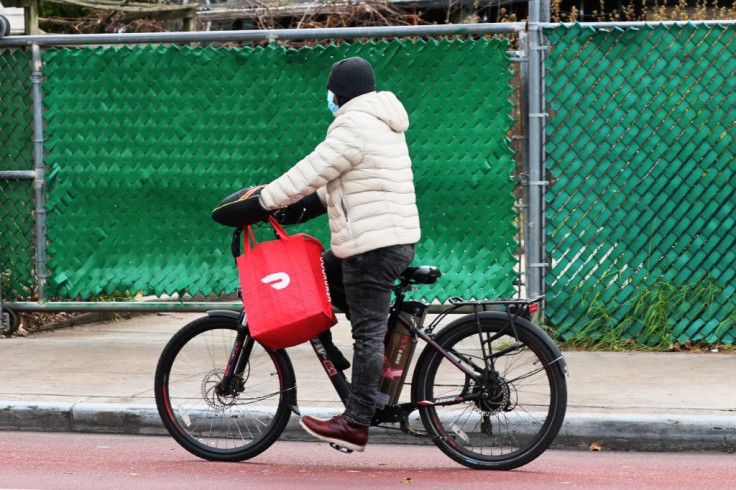
Amidst a broader discourse on tipping etiquette in the United States, DoorDash and Uber Eats have recently unveiled substantial modifications to their tipping policies.
This strategic shift is a direct response to the newly implemented minimum wage increase for app-based food delivery workers in New York City, presenting the platforms with the challenge of passing on additional costs while addressing the evolving dynamics of tipping behavior among Americans.
Navigating the Impact of NYC's Minimum Wage Increase
The alterations stem from a recent ruling by the New York State Supreme Court, which mandated a minimum pay rate of at least $17.96 per hour for app-based food delivery workers.
This decision, hailed by officials for its potential to uplift thousands of New Yorkers from poverty, has compelled DoorDash and Uber Eats to reevaluate and adapt their tipping procedures.
In the midst of a cultural shift where fewer Americans are engaging in tipping, these adjustments underscore the platforms' acknowledgment of the need to pass on extra expenses to their customers.
DoorDash and Uber Eats Respond, Revamp Tipping Structures
In response to the new regulations, DoorDash and Uber Eats are overhauling their tipping processes for New York City customers. The conventional tipping prompt on the checkout page is being replaced with a service fee, providing customers with the option to tip post-checkout. DoorDash emphasizes that, despite these changes, delivery drivers will continue to receive 100% of the tips.
DoorDash justifies these modifications, explaining that the new regulations compel them to increase fees for orders in New York City. The decision to move the tipping option post-checkout is portrayed as an effort to better balance the impact of the additional costs imposed by the new minimum wage structure.
Similarly, Uber Eats is discontinuing upfront tipping, and customers will only have the option to tip after the order has been delivered. The company maintains that tipping remains optional and is intended as a gesture of appreciation for exceptional service.
Both platforms underscore the necessity of adapting to the evolving economic landscape and the impact of the city's minimum wage increase on their operations.
Read Also: The Exclusive Poultry Los Angeles Faces $3.8 Million Child Labor Penalty for Hiring Minors
Industry Response and Diverse Perspectives
The changes in tipping policies have sparked varied reactions. DoorDash and Uber Eats drivers now report an adjusted pay rate of $29.93 per "active" hour, factoring in the time spent on picking up and delivering orders.
However, concerns arise as drivers are not compensated for the time spent waiting for new orders. Both companies assert that these adjustments are essential to meeting the city's new minimum pay requirements.
When questioned about the decision to shift the burden of additional costs onto consumers, an Uber Eats spokesperson argued that it was an anticipated outcome, citing the city's own study, which suggested potential job cuts, reduced tipping, and increased pressure on couriers.
In contrast, NYC's Consumer and Worker Protection Department rebuffs this characterization, asserting that the changes in tipping policy are the result of the companies' independent business decisions.
As DoorDash and Uber Eats navigate the intricacies of the evolving gig economy, the tipping debate underscores the challenges faced by both platforms and consumers in adapting to the changing economic landscape.
DoorDash and Uber Eats' proactive response to the minimum wage increase in New York City reflects the dynamic nature of the gig economy.
As the industry juggles compliance with new regulations and changing consumer behaviors, these platforms showcase their adaptability in ensuring a sustainable model for both delivery drivers and customers in the ever-evolving landscape of app-based food delivery services.
Related Article: CDC Warns of Winter COVID Surge: Variants Rise Amid Low Vaccination